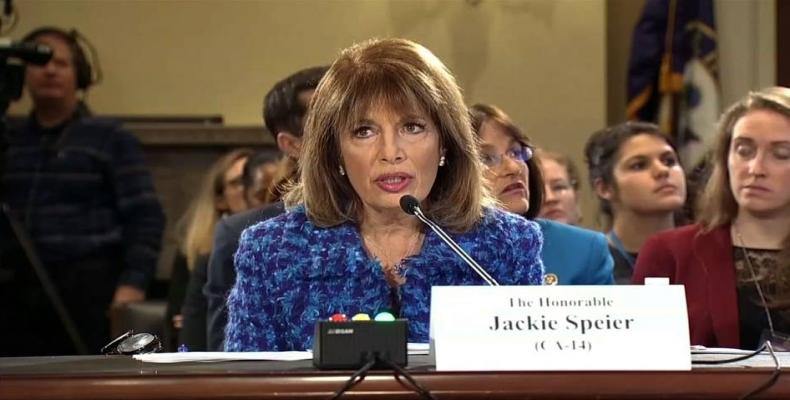Washington, November 28 (RHC)-- U.S. lawmakers returned to Capitol Hill this week, where they’re facing escalating pressure to reveal which lawmakers have used taxpayer money to pay out at least $17 million in settlements for sexual harassment and racial discrimination. While many members of congress are pushing to pass a resolution to require mandatory sexual harassment awareness training, Congress member Jackie Speier is introducing legislation to make all sexual harassment settlements public. The bill would also end a mandatory “cooling off period” before accusers could file sexual harassment claims.
Michigan Congressman John Conyers is stepping aside as the ranking Democratic lawmaker on the House Judiciary Committee, after multiple women accused him of sexual harassment and misconduct. Conyers reportedly paid out $27,000 to one woman who alleged she was fired from his Washington staff because she rejected his sexual advances. The news of the settlement was first reported by Buzzfeed, after a white supremacist blogger gave Buzzfeed the documents. Conyers denies the accusations.
Meanwhile, Minnesota Democratic Senator Al Franken says he will not resign from the Senate, but is returning to Capitol Hill feeling “embarrassed and ashamed” after three women accused him of groping them without their consent.
This all comes as President Donald Trump -- himself accused of sexual harassment by at least 16 women -- continues to offer support for Alabama Republican Senate candidate Roy Moore, who has been accused of sexually harassing or assaulting at least nine women when they were children or young adults.
U.S. Lawmakers Under Escalating Pressure to Reveal Sexual Harassment Settlements


